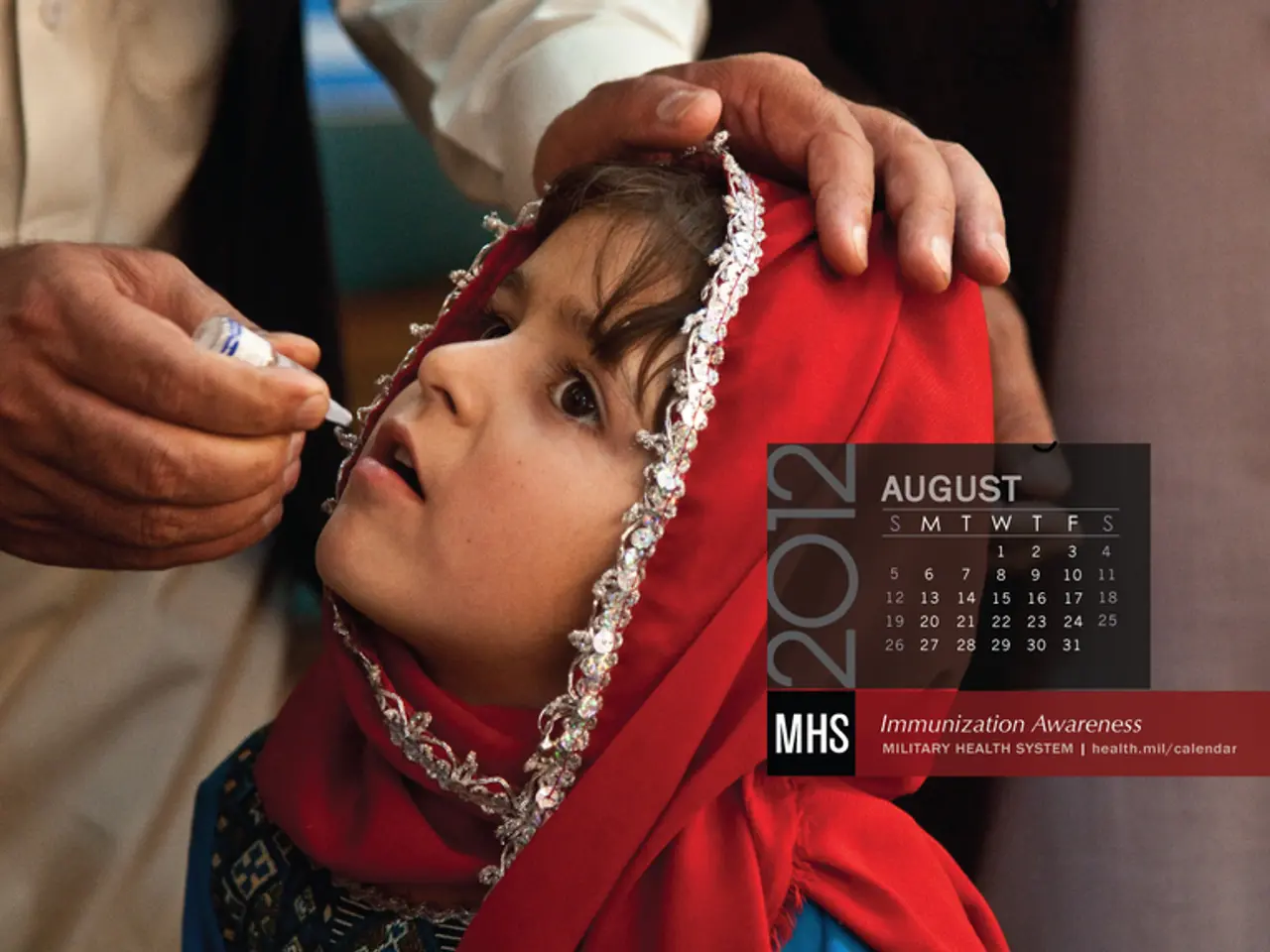Revised COVID-19 vaccination guidelines for children from American pediatricians vary from the CDC's recommendations
The American Academy of Pediatrics (AAP) has taken a stance that differs significantly from the U.S. government's current guidance on COVID-19 vaccinations for children. While the AAP strongly recommends vaccination for all children ages 6 to 23 months, the Centers for Disease Control and Prevention (CDC) under Health Secretary Robert F. Kennedy Jr. no longer recommends routine vaccination for most healthy children in this age group.
The AAP's new advisory panel has voted that people should only get flu vaccines that are packaged as single doses and do not contain the preservative thimerosal. They also recommend vaccinations for older children with underlying health conditions and those in contact with vulnerable individuals.
In contrast, the CDC promotes a "shared clinical decision-making" approach for children aged 6 months to 17 years who are not immunocompromised. This means that vaccination is optional and based on discussions between families and doctors rather than a standard recommendation.
The divergence between the AAP and CDC can be attributed to several factors. The AAP bases its guidance on a thorough independent review of current evidence, maintaining that COVID-19 still poses risks to young children and those with vulnerabilities. On the other hand, the CDC’s Advisory Committee on Immunization Practices was dismantled and replaced with less traditional members, leading to political and scientific disruptions that have undermined trust in CDC’s vaccine recommendations.
Experts expect pediatricians to follow the AAP’s science-based, evidence-driven guidelines rather than the CDC’s less definitive stance, given the clarity and consistency of the AAP recommendations.
It's important to note that children ages 6 months to 2 years are at high risk for severe illness from COVID-19. The AAP is strongly recommending COVID-19 shots for this age group.
The AAP has issued vaccination recommendations for children since the 1930s. However, this is the first time in 30 years that their recommendations differ from those of the U.S. government. The AAP's Friends of Children Fund has received donations from vaccine manufacturers, a fact that has raised concerns about potential conflicts of interest.
Kennedy's new vaccine panel, which includes vaccine skeptics, has yet to vote on COVID-19 shot recommendations. The CDC issued language that healthy children may get the COVID-19 shots, but there was no longer a "should" recommendation a few days after Kennedy's announcement.
The Department of Health and Human Services has accused the AAP of undermining national immunization policymaking and putting commercial interests ahead of public health. The AAP, however, maintains that there is no evidence of harm from the preservative thimerosal, a common ingredient in some vaccines.
In conclusion, the AAP and CDC have taken different approaches to COVID-19 vaccination recommendations for children, with the AAP advocating for vaccination based on safety and efficacy data, and the CDC adopting a more cautious, non-routine recommendation approach. This divergence highlights the ongoing debate and complexity surrounding vaccination policies and public health decisions.







